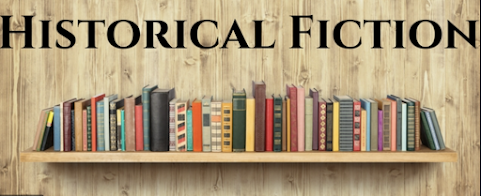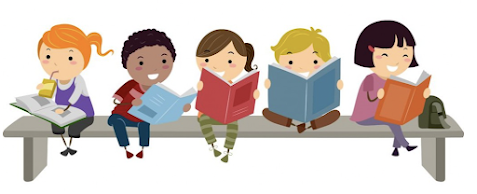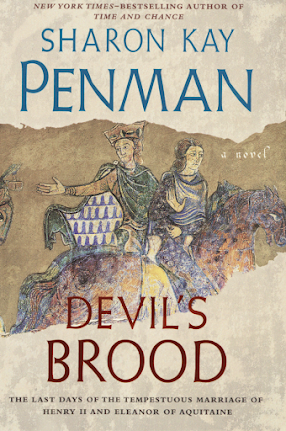Book reviews featuring history, historical fiction, and mysteries, as well as my thoughts on all things bookish.
Pages
Tuesday, August 30, 2022
E-Readers or the Real Deal?
Saturday, August 27, 2022
To Hold the Crown by Jean Plaidy (Uneasy Lies the Head- UK Version)
Wednesday, August 24, 2022
Why I Love Historical Fiction
Friday, August 19, 2022
Shattered Crowns: The Scapegoats 1913-1914 by Christina Croft
Tuesday, August 16, 2022
My Top Auto Buy Authors (What the heck is that?)
I learn something new all the time while writing this blog. That's why it's so much fun for me! I read an article yesterday called, "Who Are Your Auto Buy Authors?" I had no idea what it was referring to. Apparently in the book loving world "auto buy" authors are those whose books one will buy without even reading the cover, reviews, or the jacket. You just know you have to have the book based on who wrote it. I have been doing this all my life but never knew it was a condition with a name, lol.
I started thinking about who my auto buy authors are. It has definitely changed over the years which is totally normal. As a teen and young twenty something I used to heavily read true crime and politics. Then as I got older I gravitated to classics and history. The last decade my tastes have moved into historical fiction. So that is where I wanted to create my list from. Below are my top auto buy authors. Who are yours? Did you even know such a thing existed?
- Anne Perry (Victorian Mysteries)- I discovered her books years ago when I was merging my love of true crime, history, and fiction. She rarely disappoints and if I see one of her books it's hard not to add it to my Kindle. I know I'm getting a solid mystery to solve, combined with Victorian manners, and dark, creepy suspense.
- Sharon Kay Penman (Medieval Period)- Anyone who has read my book reviews knows this is not a shocker. What's funny is I actually didn't much care for her the first time I read The Sunne In Splendour. I thought it was tedious and dragged. But I kept going and by the time I got to the end I realized I loved it! The "tedium" was really details that added to the richness and thoroughness of her writing. Now when I get a chance to read one of her books I enjoy savoring every word. I have learned so much about Eleanor of Aquitaine, the Crusades, and Richard I from her books.
- Ellis Peters (Cadfael Chronicles- Medieval Mysteries)- These are just the best! I feel so behind because there are twenty and I'm still only on book four. They are short but pack so much witty dialogue and excitement in them that they are a joy to read. Cadfael the Monk solves mysteries in his world of Shrewsbury, England circa 1100's. Combining medieval history with murders and intrigue you can't go wrong with one of these books.
- Diana Gabaldon (Outlander Series)- My husband would probably fall over from shock that I didn't list her first. I've been obsessed with all things Outlander since 2003 when I picked up the first book. I had never heard of Jacobites, Culloden, or Bonnie Prince Charlie until reading Outlander. Now I can't get enough of these subjects. Combining time travel with history is always a win and this author is the queen of that genre. I hope she goes on writing about Jamie and Claire and their crew forever.
- Jean Plaidy (Kings and Queens)- I discovered this author in high school in my public library. I read her book about Queen Elizabeth II and was hooked. I will probably die before I finish all her books as this lady was a prolific writer who penned hundreds of books about every King and Queen from William the Conqueror to Queen Victoria. She also has books about French, Italian, and Spanish royalty that are amazing. Simplistic in writing and dialogue they nonetheless are wonderful to read if you are learning about the historical figure and want just the truth. No embellishments. She tells the story of the lives of these royals in an entertaining yet factual way and you learn so much.
- Alison Weir (Tudors, Eleanor of Aquitaine, Plantagenets)- I started with her classic book The Six Wives of Henry VIII which is a biography of the wives. She started writing historical fiction novels about the same queens which I have yet to read. Her book on the vanished Plantagenet princes was just as compelling. If you want books that are just straight history she is great for this.
- Christina Croft (Victorian Era and early 20th century history)- Her Shattered Crowns series is historical fiction that covers WWI in an easy to understand way and allows you to get to know the major players as real people. I have also read her biographies about Queen Victoria's daughters and granddaughters. She is the place to go to for all things Queen Victoria.
Thursday, August 11, 2022
The Jane Seymour Conspiracy (The Marquess House Saga Book Four) by Alexandra Walsh
Monday, August 8, 2022
Back To School: Classic Novels For Kids
- Charlie and the Chocolate Factory by Roald Dahl
- Charlotte's Web by E.B. White
- Little House on the Prairie by Laura Ingalls Wilder
- The Castle in the Attic by Elizabeth Winthrop
- Hello, Mrs. Piggle-Wiggle by Betty MacDonald
- Tales of a Fourth Grade Nothing by Judy Blume
- Shiloh by Phyllis Reynolds Naylor
- Tuck Everlasting by Natalie Babbitt
- Bridge to Terabithia by Katherine Paterson
- Beezus and Ramona by Beverly Cleary
- The Lion, the Witch, and the Wardrobe by C.S. Lewis
- The Midwife's Apprentice by Karen Cushman
- Roll of Thunder, Hear My Cry by Mildred D. Taylor
- Where the Red Fern Grows by Wilson Rawls
- Treasure Island by Robert Louis Stevenson
Thursday, August 4, 2022
Devil's Brood by Sharon Kay Penman







